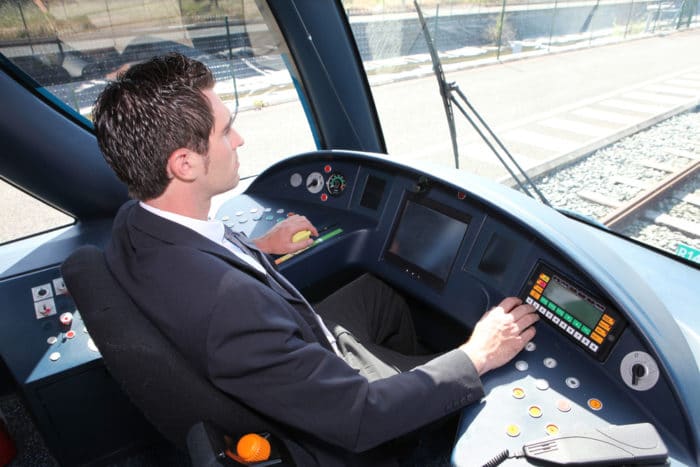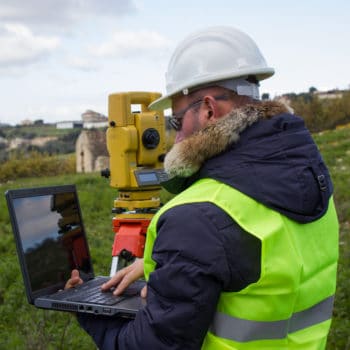Why We Love It
-
$59,360Potential Avg. Salary
-
-2.2%Job Growth Rate
-
Don't Take Work HomeCareer Attribute
-
Flexible HoursCareer Attribute
As a train conductor, you will work as a supervisor to ensure the safe coordination and functioning of locomotives, especially for long-distance trains. The work may involve loading or unloading cargo/passengers and overseeing the job duties of other on-board staff.
Recommended Schools
What is a Train Conductor?
Duties
A train conductor is responsible for the following tasks:
- Monitor the movement of trains and rail cars, which involves signalling crew regarding movement of the train (e.g. when to back-up, stop or start) using a lantern, signals with hands or flags, etc.
- Ensure that track switches are in working order, and change them as per the direction of oncoming train cars within the yard limit or railroad.
- Actively promote compliance with train orders, safety regulations and the Federal Railroad Administration (FRA).
- Assess equipment and machinery on train cars before their departure to make sure they are functioning optimally.
Day In The Life
Your day to day work will vary depending on what type of train conductor you are. There are four types of train conductors: road switcher conductors, road conductors, traffic coordinators, and yard conductors. A road switcher conductor will spend his or her day collecting train cars from different clients and delivering them to the home terminal.
A road conductor on the other hand, is in charge of inspections and ensuring that goods reach their specified destination in a timely manner. They commute between the home terminal and their final destination, often picking up other train cars on the way. As a traffic coordinator, you would travel less and oversee seamless operations from a terminal office. You will closely monitor the movement of freight to and from the yard, in alignment with the company’s commitments.
As a train conductor, you are primarily responsible for seeing that all crew members and staff on the train are performing their jobs well. If you are not assigned to a train, your work will include coordinating with other personnel like engineers or the yardmaster, to solve any issues that arise on the track or on a train. Whether it is people or cargo, your work revolves around ensuring all safety protocols are observed.
Work Schedule
A train conductor does not work a regular 40-hour schedule. You might be assigned different shifts through the week, which includes holidays, nights, and weekends. Typically, train conductors have to be on-call and can be requested to report to work with 90 minutes of notification. You may work outdoors in extreme weather like rain, snow, heat or ice. Depending on the job duties, train conductors sometimes have to wear protective gear like safety boots, safety glasses and hard hats as per company regulations.
Growth Of The Job
According to job trends, individuals working as train conductors can expect opportunities to arise slower than the national average for other professions until 2020. However, there will still be many job openings in the market due to an aging workforce in the next few years. As a train conductor, you will likely remain in this role for most of your career but advancement to higher positions such as a locomotive engineer may occur when the predecessor retires.
Opportunities to advance beyond entry-level roles will be given to employees that demonstrate superior understanding of the latest technologies and skills. Other than continuing work as a train conductor, you can also explore related positions in the railroad industry. For instance, you can join the role of a signal operator – the role involves installing and maintaining communication signals beside railroad tracks or at rail-yards.
Typical Employers
Railroad conductors are hired to work on passenger trains or freight trains by private companies or the Department of Transportation. Currently, there are job openings provided by companies like Trans-Global Solutions, Inc., Amtrak, Genesee & Wyoming Inc., Herzog Transit Services Inc.
Recommended Schools
How To Become a Train Conductor
There are no formal educational requirements to become a successful train conductor. However, it is recommended that you complete a high school diploma alongside on-the-job training. Beyond educational credentials, having the right hands-on experience is the best way to have an advantage in this industry. Most train companies require that aspiring candidates complete a 5 to 6 week-training program through a technical school or community college. Some programs also offer a certificate in railroad conductor technology, once you complete the coursework in relevant areas like signals, railway equipment, railway operations and railroad conductor responsibilities.
Train Conductor Salary Data
We’ve provided you the following to learn more about this career. The salary and growth data on this page comes from recently published Bureau of Labor Statistics data while the recommendations and editorial content are based on our research.
National Anual Salary
Low Range
$46,650Average
$59,360High Range
$82,310National Hourly Wage
Low Range
$22/hrAverage
$29/hrHigh Range
$40/hrHow do Train Conductor salaries stack up to other jobs across the country? Based on the latest jobs data nationwide, Train Conductor's can make an average annual salary of $59,360, or $29 per hour. On the lower end, they can make $46,650 or $22 per hour, perhaps when just starting out or based on the state you live in.
Salary Rankings And Facts
#275 Nationally for All Careers
Above Average Salary Nationally
Highest Education Among Train Conductors
- 0.2% Doctorate
- 1.4% Masters
- 12.9% Bachelors
- 9.8% Associates
- 38.4% College
- 35.4% High School
- 2% Less than High School
Job Growth Projections and Forecast
2014 Total Jobs
40,4002024 Est. Jobs
39,500Job Growth Rate
-2.2%Est. New Jobs
-900How does Train Conductor job growth stack up to other jobs across the country? By 2024, there will be a change of -900 jobs for a total of 39,500 people employed in the career nationwide. This is a -2.2% change in growth over the next ten years, giving the career a growth rate nationwide of Above Average.
Growth Rankings And Facts
#658 Nationally for All Careers
Above Avg. Growth Nationally
What Companies Employ The Most Train Conductors
| Industry | Current Jobs | New Jobs Needed | % Increase |
|---|---|---|---|
| Rail transportation | 39,200 | -1,000 | -1% |
| Support activities for rail transportation | 500 | --- | --- |
| Local government, excluding education and hospitals | 200 | --- | --- |












